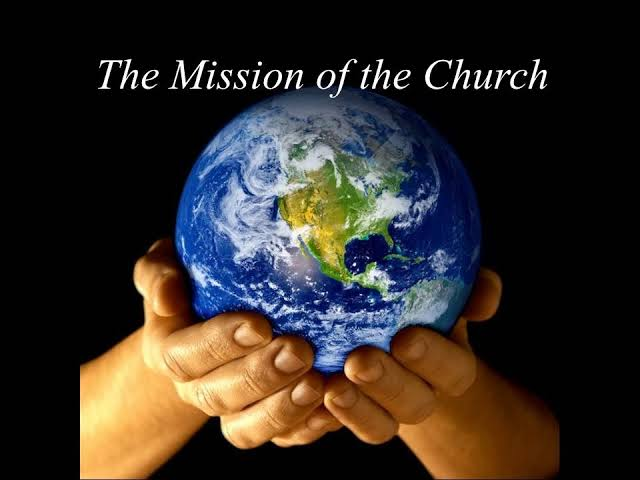Rev.
Fr. Emmanuel Emenike Onyia.
HOW
ARE YOU CONTRIBUTING TOWARDS THE MISSION OF CHRIST AND THE SALVATION OF
HUMANITY?
In his
mission to save humanity, Jesus involved a lot of people, some he called to
follow him, some desired to follow him but could not, while some decided to
follow him because of their personal experience of him and what they could gain
from him. But only a few followed him in order to provide for him and contribute
towards the success of his mission. These is the dispositions and personality of
those involved in the mission of Christ in our Gospel passage today.
For
when Jesus made his way through towns and villages preaching, and proclaiming
the Good News of the kingdom of God. He went with his twelve disciples whom he
had called, as well as certain women who had experienced him personally through
his divine healing and deliverance. Along these groups are several others who
provided for them out of their own resources.
This
Gospel passage actually points out the nature of the mission of the Church in
proclaiming the word of God and our part in this mission. Thus, we are reminded
of how God has called us to follow Christ and contribute to the salvation of
humanity. And St. Paul in our first reading tells us that, we must learn to
sacrifice for the mission knowing that the love of money is the root of all
evils’ and there are some who, pursuing it, have wandered away from the faith,
and so given their souls several numbers
of fatal wounds.
But,
as people dedicated to God, we must avoid all that. We must aim at becoming
saintly and religious, filled with faith and love, patient and gentle. We must
fight the good fight of the faith and win for ourselves eternal life. Thus as
children of eternal life, who are judged worthy of a place in the heavenly
Kingdom, we are to be fully involved in the mission of Christ.
For
there are men and women of our time who give themselves to noble causes. They
give themselves to the service of others: they are those who see to the good of
others and contribute to the growth of God’s Kingdom just like the women in our
Gospel passage today. These are people of noble cause, like parents who teach
their children the ways of the Lord by their practical way of life, like people
who help the weak and the vulnerable, like friends who speak the truth and
stand by it and political and Church leaders, who renounce power rather than
compromise principles and uses every opportunity they have to evangelize the
people.
Dear
friends, are we really part of this mission of Christ? In what ways are we
supporting the mission of Christ? Are we ready to contribute towards this
mission by our ways of life? Do we desire to be part of this mission but lack
the courage and discipline? Or do we think that this mission is not for us? The
fact remains that as baptized persons, it is our obligation to carry out this
mission and it is not optional. It is an obligation we must carryout
irrespective of our status, position, environment and deposition.
LET US
PRAY: Lord God, the women in our Gospel today involved in your mission and
contributed towards the success of your evangelization because they have
experienced your love and mercy and wished to reciprocate this love, help us to
also realized how much of your love and mercy we have enjoyed and so be deposed
to embrace and contribute to the mission of our salvation. We ask this through
Christ our Lord. Amen. Do have a blessed day.










